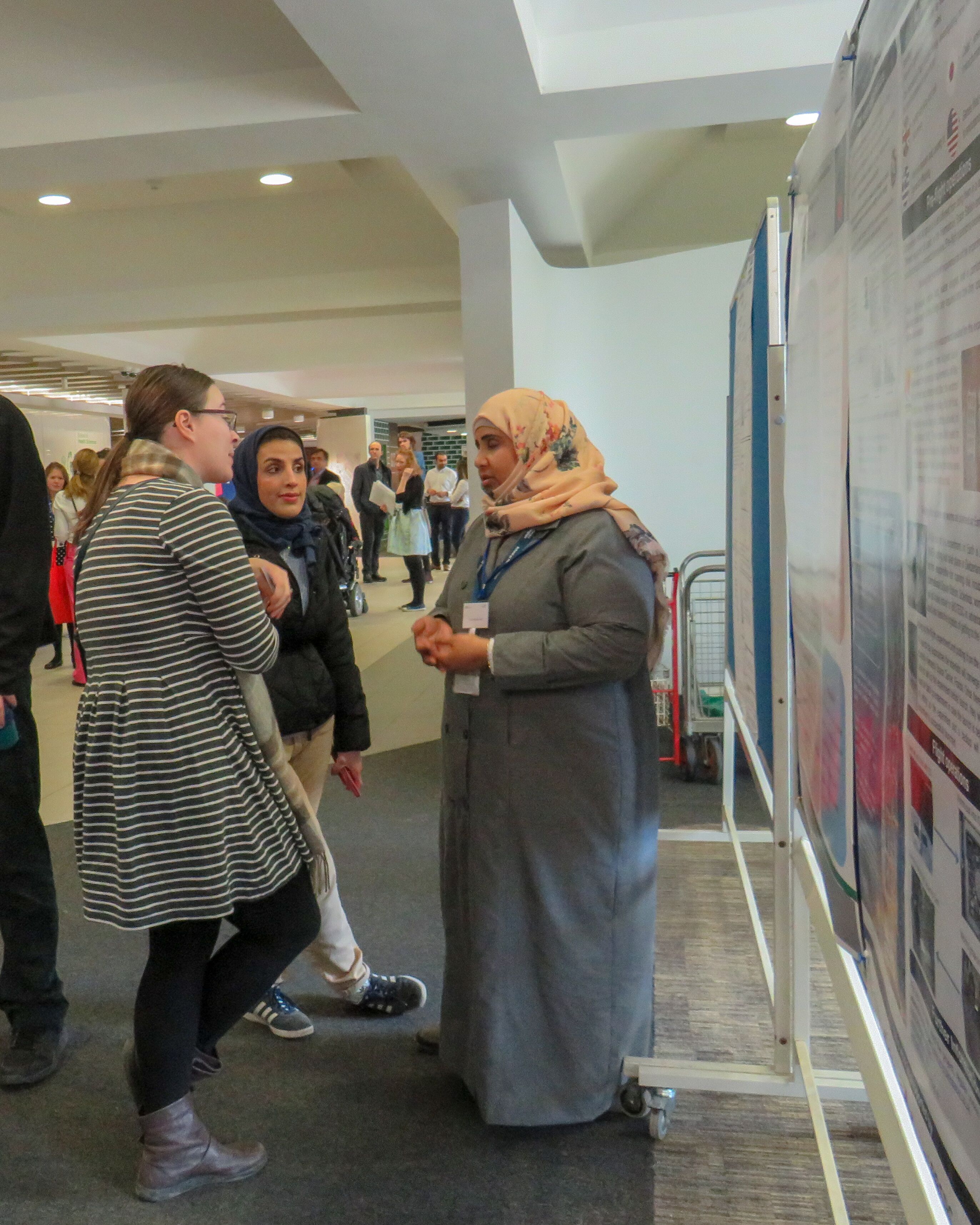
March 1, 2019, by bmillar
The Musculoskeletal Theme Annual Science Day
The Musculoskeletal Theme Annual Science Day took place on the 14th January and brought together students, researchers, clinicians, academics and all those interested in MSK research in Nottingham. The opening session was led by the Phenotyping Research Area which featured a presentation on the Investigating Musculoskeletal Health and Wellbeing Cohort Study, a 5 year longitudinal cohort study which will help us understand how pain, disability and frailty are intertwined. One problem can lead to another, whereas other things we do might protect us from further problems. Approximately 5000 participants were recruited to the study during its first year, from primary and secondary care in the East Midlands and beyond according to data supplied by Dr Bonnie Millar. Kehinde Akin-Akinyosoye spoke of how data from this cohort has enabled the validation of a questionnaire, the Central Aspects of Pain (CAP)-Knee questionnaire. CAP-Knee identifies people with knee pain mechanisms that might benefit from specific treatments that we are developing within the NIHR Nottingham BRC. This is now being further developed for people with musculoskeletal pain affecting other joints, and is being tested as a stratification tool in randomised controlled trials. Prof Walsh underlined how the IMHW cohort study is also capturing outcome data from people who have undergone joint replacement surgery in Sherwood Forest Hospitals NHS Foundation Trust and who have donated joint tissues to our Joint Tissue Repository. This will enable the identification of characteristics within osteoarthritic joints that might determine how beneficial surgery will be for an individual.
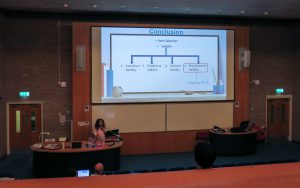
Dr Benjamin Ollivere provided an overview of research in trauma at Nottingham, emphasising the importance of establishing clinical effectiveness. Following the account of current trauma research projects, the Metabolism Research Area expounded the different methodologies for quantifying muscle mass and opened with Prof Atherton noting the potential of oral tracers and stable isotopes and what they can tell us about acute protein turnover.
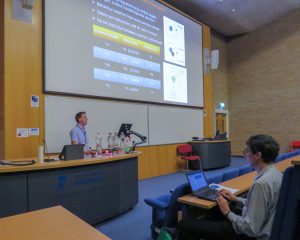
He was followed by Daniel McCormick, who elucidated the link between muscle fibre denervation and fibre loss in aged skeletal muscle. The final 2 speakers for the Metabolism Research Area, Dr Eleanor Lunt and Prof Paul Greenhaff, focused on fractures, principally the connection between muscle mass, metabolic quality and physical function in frail, older people with non-weight bearing fractures and the effect of early versus delayed ankle fracture fixation on muscle mass and metabolic health status. Around 30% of ankle fracture patients report ongoing pain and disability at 6 months post injury, and 20% of patients do not return to baseline function thereafter. Current NICE guidelines recommend patients with operable ankle fractures have surgery within 24 hrs of injury. Despite this, 50% patients do not have an operation <24 hrs after injury, due to mostly logistical reasons.
Dr Ana Valdes provided an overview of the Brain Research Area, which is integrating musculoskeletal outcomes with cognition, neurodegeneration and sleep. Part of this programme of research will explore the link between cognitive decline and chronic pain, a topic which was taken up by Prof Eamonn Ferguson who concluded that the pain-cognition link is robust and that there is support for both system-fitness and resource depletion/reallocation. Hence there is now a need to explore more detailed mechanism and links.
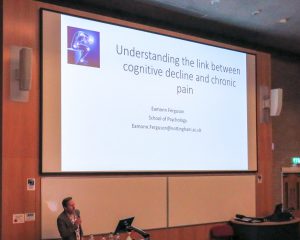
Concluding this session Sameer Gohir spoke of ongoing research into the link between exercise, knee pain and sleep.
For the Complex Care Research Area Prof John Gladman provided overview of current work into evaluating novel complex interventions, notably in patients with lower limb fracture who are non-weight-bearing. This section concluded with early career researchers, Amy Fuller and Polykarpos Nomikos, presenting their findings on the assessment of fidelity in the East-Midlands Knee Pain Multiple Randomised Controlled Trial using qualitative techniques.
The final set of themed presentations showcased MSK-Imaging, with Prof Auer summarising the milestones in MRI research in MSK disorders at Nottingham, with notable updates on knee and brain MRI research. This was complemented by Dr Christoph Arthofer’s discussion of computational methods development for image analysis.
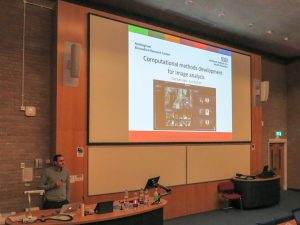
The Conference drew to a close with the presentation for best poster to Joanne Stocks for research on identifying placebo responders and predictors of response in osteoarthritis through individual patient data meta-analysis. There were over 60 posters on a diverse range of MSK research displayed at the event.
No comments yet, fill out a comment to be the first

Leave a Reply